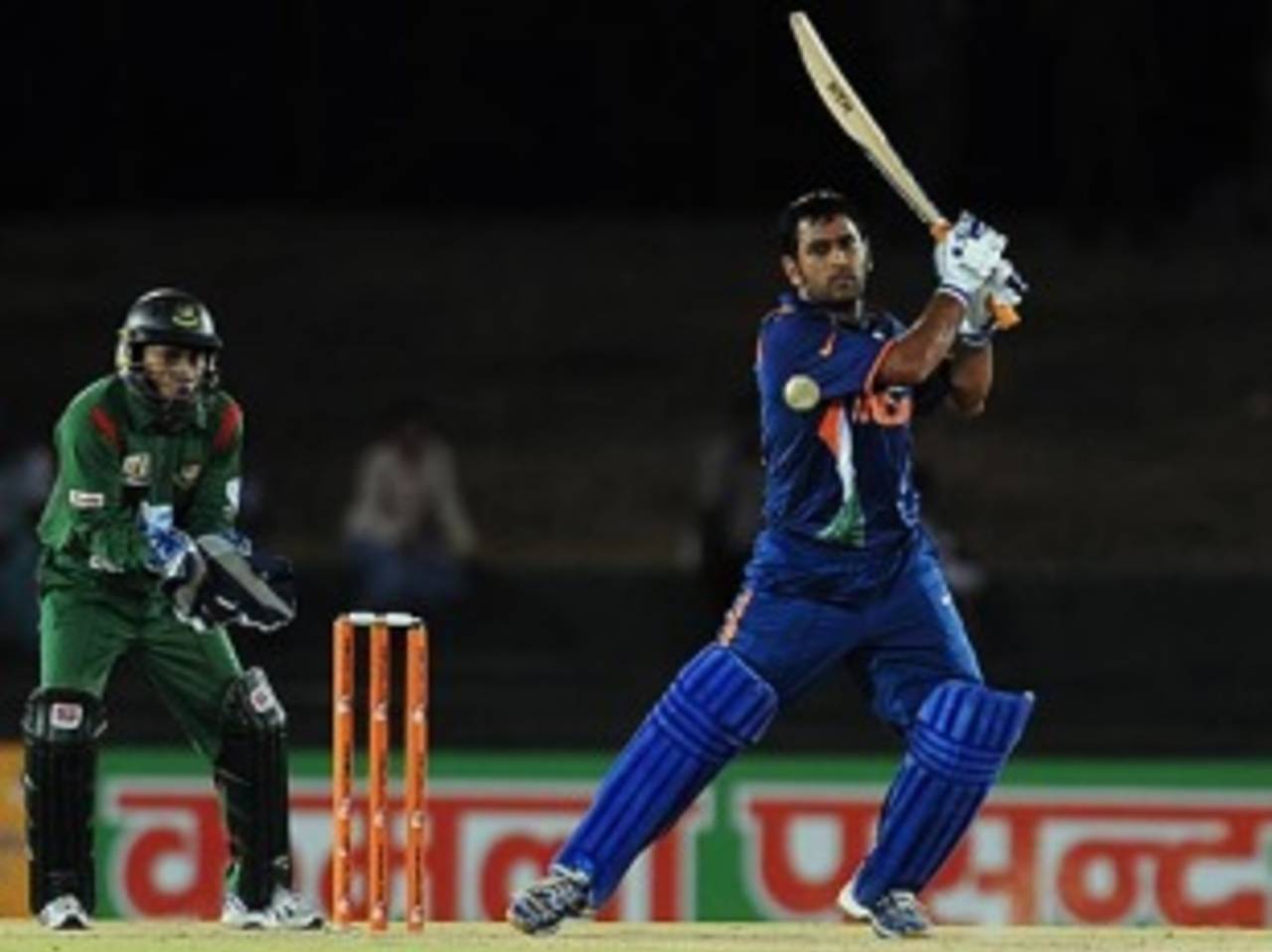There'll be a 50-overs-a-side World Cup played in the subcontinent in early 2011, complete with Powerplays, restrictions on field placings and the number of overs delivered by a bowler, and with one team batting during the day and another at night. However, what form the World Cup of 2015 in Australia and New Zealand will take is anyone's guess. For a game that's supposed to be gasping for breath, the 50-over version is generating serious debate and much of the speculation is emanating from Australia.
The animated discussion has occurred because of the perception that since the dramatic arrival of Twenty20 cricket, the longer limited-overs version is mundane. The main charge levelled at ODIs is that the middle period of an innings is so predictable that if you nod off, read a book or repair to the bar in that time, the only thing you'll miss is the exercise provided by participating in the Mexican wave.
This criticism does have some merit. However, the reason behind this perceived dullness of ODIs is not so much the increased anticipation provided by a hectic Twenty20 match but a combination of unimaginative captaincy and a reliance on gimmicks to prop up the longer game.
The "formulated" nature of the middle overs of an ODI preceded the inception of Twenty20 cricket. Whenever the fielding captain stops trying with all his might to capture a wicket and relies more on the opposition batsmen committing cricketing suicide, the game stops being an interesting contest. When the batting side is happy to score at five or six an over without taking any risks, and the fielding side is content to concede runs in singles, the game loses its meaning.
There's only one reason to play cricket and that's to win the contest. You won't always achieve that pleasing result but players will have fun trying if the captain strives to make the contest interesting. When a fielding captain's mind is clouded with negativity, the game can become tedious, and if spectators feel that way, then spare a thought for the fielders. At least the fan can go to the bar or, in the worst case, get up and go home; the player has to stay on the field and endure his punishment.
Selectors must be more pro-active. If a captain has misplaced his imagination, then he should be reminded by the chairman that he'd better rediscover it, otherwise he'll find himself either unemployed or back among the rank and file.
If you want the 50-over game to suffer the same fate as dial-up email and ashtrays, then come right out and say so. But turning it into a two-innings limited-overs match is simply more Twenty20 cricket by stealth
The introduction of Powerplays has firmly entrenched the thought in many a captain's mind that between these "adrenaline rush" periods, the idea is mostly about keeping wickets in hand. That's not the way batting should work. A batsman must attack every delivery as his first priority, hoping to score multiple runs. If that's not possible, the next option is to sneak a single, and if the delivery is just too good, then look to survive it and prosper from the next ball. As Dr WG Grace so eloquently put it: "I don't like defensive shots, you only get threes."
The administrators can't legislate to make players better or captains more imaginative; it's immaterial if you play 40 or 50 overs a side, or split the innings in two halves, or play a two-innings limited-overs game. If one team is vastly superior to the other and one captain is desperate to win and the other is hoping he doesn't lose too badly, then two things are assured: the result will quickly be a foregone conclusion and the game will lose any semblance of excitement at about the same time.
If you want the 50-over game to suffer the same fate as dial-up email and ashtrays, then come right out and say so. But turning it into a two-innings limited-overs match is simply more Twenty20 cricket by stealth.
In the meantime, until selectors get more proactive on captaincy, or administrators discover a miracle cure for an uneven spread of talent, it won't much matter what legislative changes occur. Many games will cease to be contests early in the proceedings. As long as only about half the playing nations are truly competitive at international level in any game of substantial length, and this number decreases the moment the pitch has some life, legislation isn't the answer.
Former Australia captain Ian Chappell is now a cricket commentator and columnist
